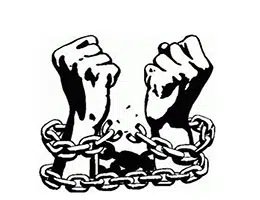 Decolonization implies the end of colonial rule that was exercised over a territory. This means that the region in question is no longer a colony (an area dominated by a foreign power).
Decolonization implies the end of colonial rule that was exercised over a territory. This means that the region in question is no longer a colony (an area dominated by a foreign power).
On a political level, a colony is a land that is governed and administered by a distant country. The inhabitants of the colony, in this framework, depend on the decisions made by the authorities of the colonizing nation. The territories of the American continent , for example, for several centuries were colonies of European countries such as Spain , Portugal and France .
After the end of World War II , the concept of decolonization emerged. The notion alludes to the intention of the United Nations Organization ( UN ) to promote the national independence of nations under colonial domination. In fact, since 1961 the UN has had a Special Decolonization Committee to promote this type of process through political negotiation and dialogue, avoiding war.
In recent decades, several territories achieved decolonization. Namibia , to cite one case, achieved independence from South Africa in 1990 . Three years later, Eritrea followed suit by completing its decolonization and gaining independence from Ethiopia .
There are regions, however, in which decolonization has not yet taken place. The Malvinas Islands , in southern Argentina, are administered by the United Kingdom despite Argentina claiming their sovereignty. The Falklanders themselves, for their part, have expressed their intention to retain the current colonial status and continue depending on the British government .
We must understand decolonization as a political process that pursues the liberation of a colony and that generally has violence as a fundamental element, since we cannot expect that the country that initially decided to colonize the foreign territory will be kind enough to let it go. released simply for having reflected on his abuse of power.
 Violence is so present in the decolonization processes that in some cases there is what is known as a war of independence , which usually takes place after a revolution . This should never exist: no one should subject another to their will, and therefore no one should start a war to regain their freedom.
Violence is so present in the decolonization processes that in some cases there is what is known as a war of independence , which usually takes place after a revolution . This should never exist: no one should subject another to their will, and therefore no one should start a war to regain their freedom.
Of course, it may also happen that decolonization takes a less direct path and, although it is not entirely true, less violent. When the nations involved try to carry out a series of negotiations to disengage and these are not successful, demonstrations by the colony usually take place, which are responded to by repression by the colonizers' security forces; Sometimes, this opens the doors to revolts of a greater degree of violence that finally allow negotiations to be concluded and independence granted to the colony.
If we look for an example of non-violence , then we can refer to the case of India, although this is not very common. The lack of activity to regain independence is not always seen well: there are great thinkers who approve of violence as long as it is used in extreme cases, to protect one's own from injustice. Although at first glance peace seems to be the ideal path, it can be interpreted as a lack of commitment if it results in the suffering and subjugation of so many people.
Throughout history, some of the most notable cases of decolonization were the following: in 1776, after an armed revolt , the thirteen original colonies of North America declared their independence; In 1804, Haiti declared itself independent of French rule; In 1808, Brazil managed to free itself from Portugal; In 1816, the Viceroyalty of the Río de la Plata, in Argentina, declared itself independent from Spain; In 1818, Chile also achieved independence from Spain.
